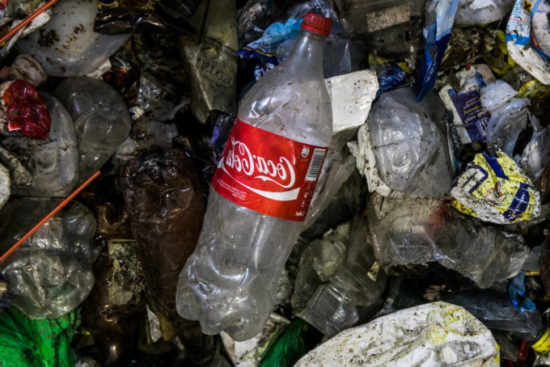Global Brands Pledge Commitment in Fight against Plastic Pollution

Close on the heels of the landmark EU move to ban all single use plastics by 2021, about 250 organizations around the globe have today pledged to cut all plastic waste from their operations in what the United Nations is referring to as the most ambitious effort yet to fight plastic pollution, say reports. In India, prime minister, Narendra Modi had earlier this year pledged to push for the same by 2022, the country’s 75th independence anniversary.
“We know that cleaning up plastics from our beaches and oceans is vital, but this does not stop the tide of plastic entering the oceans each year. We need to move upstream to the source of the flow,” said Ellen MacArthur, the record-breaking British sailor who is behind the plastic initiative, New Plastics Economy Global Commitment. The Ellen MacArthur Foundation launched its plastic commitment drive in collaboration with the United Nations Environment Programme (UNEP). The 250 organizations that have committed to the initiative include many of the world’s biggest packaging producers from Pepsi to Kelloggs, leading consumer brands, retailers and recyclers, as well as governments and NGOs.
The United Nations Environment Programme has estimated that at the current rate at which we’re generating pollution and waste, there will be more plastic in the sea than fish by 2050, as 8 million tonnes of bottles and waste swamp the oceans each year, killing marine life and entering the food chain.
The MacArthur Foundation said, all the firms that have signed the pledge have promised to eliminate single-use and unnecessary plastic from their manufacturing and distribution networks and to also work on innovation, so that all packaging could be recycled, with targets to be reviewed regularly and updates posted on their progress to drive momentum.
Last week, the European Union Parliament voted for a complete ban on single-use plastic items. Despite the protestations of some large corporate groups, the Parliament approved a complete ban on single-use plastics, which will cover plastic products like single-use cutlery, cotton buds, straws, stirrers, and other everyday items, with provisions to target other key marine pollutants like fishing gear, cigarette filters etc. found to contribute almost 70% of the plastics polluting the oceans.
Amongst the large corporate groups that contested the approval of the ban were, Pepsi, Coca-Cola, Danone and Nestle, four of the world’s biggest food MNC’s and plastic polluters. Thanks to their packaging, last week had urged EU environment ministers to hold off backing the European Commission’s cap-tether proposal, under the new plastic ban proposal.
Not surprisingly enough, three of these brands that contested the approval and have since signed the pledge, Coca-Cola, PepsiCo, and Nestle, were recently named the world’s worst plastic polluters, according to an index by the Break Free From Plastic movement, supported by Greenpeace. In North America, these three brands accounted for 64 percent of all plastic pollution identified in cleanups, according to the analysis.
I'm proud to share @PepsiCo will strive to use 25% recycled content in our plastic packaging by 2025, a step toward building a company where plastics need never become waste. We're eager to work with suppliers, consumers & educators to achieve this vision: https://t.co/Z2npU2aYzW pic.twitter.com/BxhwhfOOCs
— Ramon Laguarta (@ramonlaguarta) October 26, 2018
“We are focused on improving the sustainability of all of our packaging, regardless of the type, and increasing the amount of recycled and renewable material,” said Ben Jordan, senior director of environmental policy at Coca-Cola. PepsiCo said it had made a number of pledges in a bid to “build a PepsiCo where plastics need never become waste”.
Erik Solheim, executive director of UNEP, described the commitment as “the most ambitious set of targets we have seen yet in the fight to beat plastics pollution.” However, with the pledge signed and the announcement made, the actual work needs to be done and will require planned execution and monitoring.




